The abstract of the session, during which Tracey Brown will moderate a discussion among Nature's Philip Campbell, Elsevier's Adrian Mulligan, and myself, is the following:
What is the future of peer review? What does it do for science and what does the scientific community want it to do? Should it detect fraud and misconduct? Does it illuminate good ideas or shut them down? Does it help journalists report the status and quality of research? Why do some researchers do their bit and others make excuses? And why are all these questions important not just to journal editors, but to policy makers and the public? In September 2009 Sense About Science in association with Elsevier are publishing the latest results from worldwide survey of 100,000 scientists’ preoccupations and preconceptions as both authors and reviewers of scientific papers. The survey will explore whether researchers attitudes to peer review are changing and whether there is a gap between their perception of peer review and the reality of what it can do. These insights will provide the baseline for discussions on how the system needs to evolve to cope with challenges it faces such as the expansion of the international research community, the issues of fraud, the development of open access and the role peer review plays in science policy and public debates about the quality of science. In this session a panel will respond to these latest results and discuss what the future for peer review is and what the international community can do to address the challenges facing peer review.Before the discussion, each of us will have six minutes to introduce a few of the topics, on which later we will take questions from the audience. Below I attach the slides, with minimal commentary. Of course, if you have a comment or a question, be sure to leave it on the thread below, and I will try to represent it during the panel discussion.
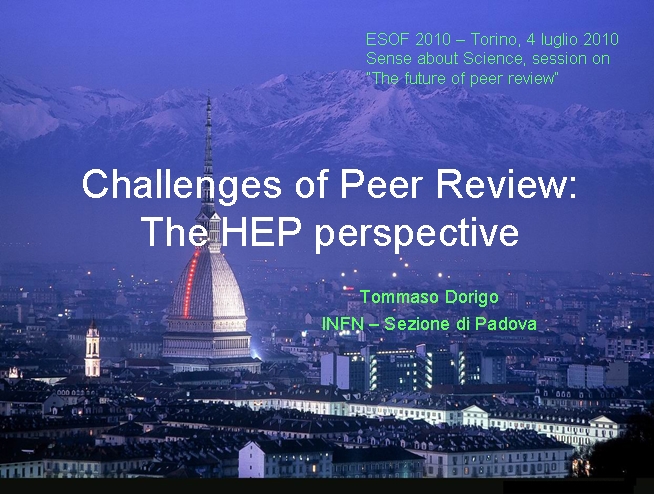
The one above is my cover slide, which uses a nice evening view of Turin as a backdrop.
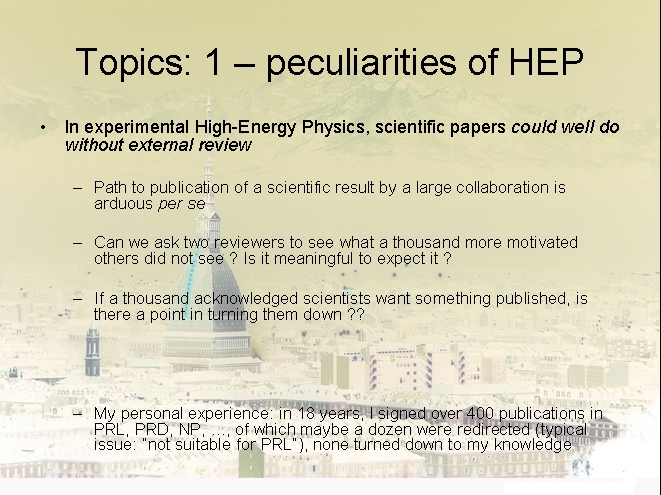
This is slide 1. I need to qualify my presence in the panel by explaining that my specific expertise is in high-energy physics, while on other topics I am just as dumb as the next guy. In HEP the issue of peer review is a bit less critical than in other fields; for one thing, we do not claim to cure diseases! Further, experimental HEP is a self-reviewing system, so for us peer review is a nice but almost useless appendage.
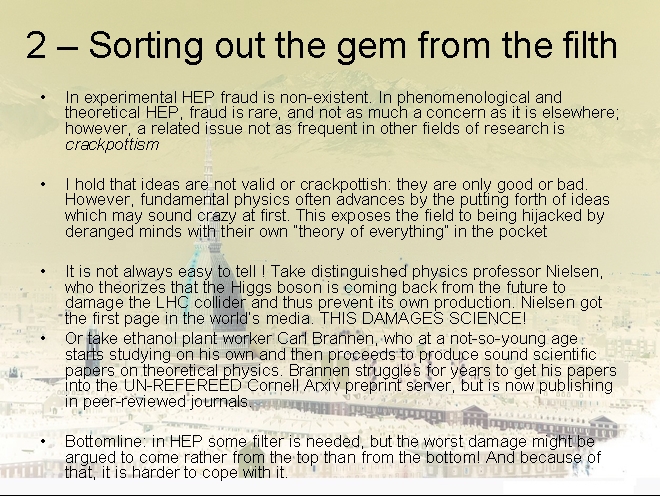
Crackpots! There are those who see them everywhere and feel threatened, and then there is me, who finds them innocuous, potentially brilliant, and in any case not as troublesome as some deranged expert. This again is relevant to fundamental physics only.
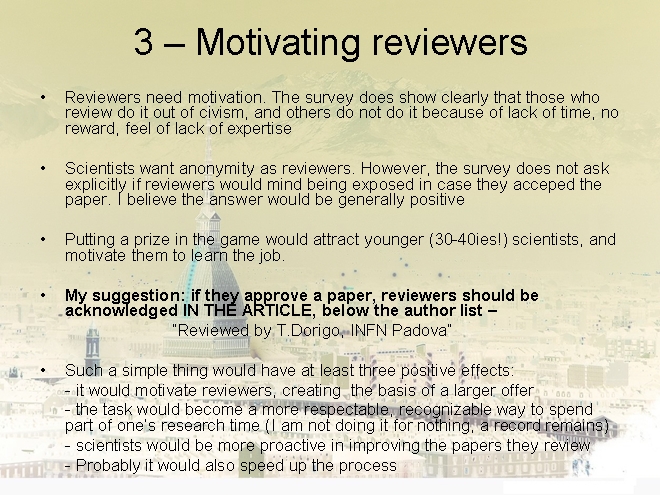
The motivation of referees is possibly the main focus of the survey, as it is a growing concern in an ever-expanding publication world. I have a recipe which would go a long way in the direction of guaranteeing publishers an offer of free reviewing. I thought hard and could not find a single drawback to my idea. Please comment.
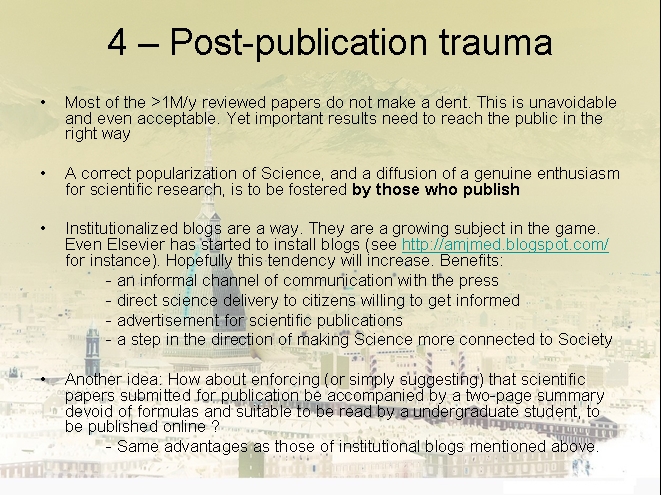 And the last slide discusses a topic that is dear to all science bloggers. How to go from a scientific publication to the public ? How do we bridge the gap ? Publishers should help -they have the means, the dough, and the motivation to do so. I will press Nature and Elsevier on this issue. At the bottom of the page I put forth another revolutionary, a bit flippant idea.... Again, comments welcome!!!
And the last slide discusses a topic that is dear to all science bloggers. How to go from a scientific publication to the public ? How do we bridge the gap ? Publishers should help -they have the means, the dough, and the motivation to do so. I will press Nature and Elsevier on this issue. At the bottom of the page I put forth another revolutionary, a bit flippant idea.... Again, comments welcome!!!




Comments